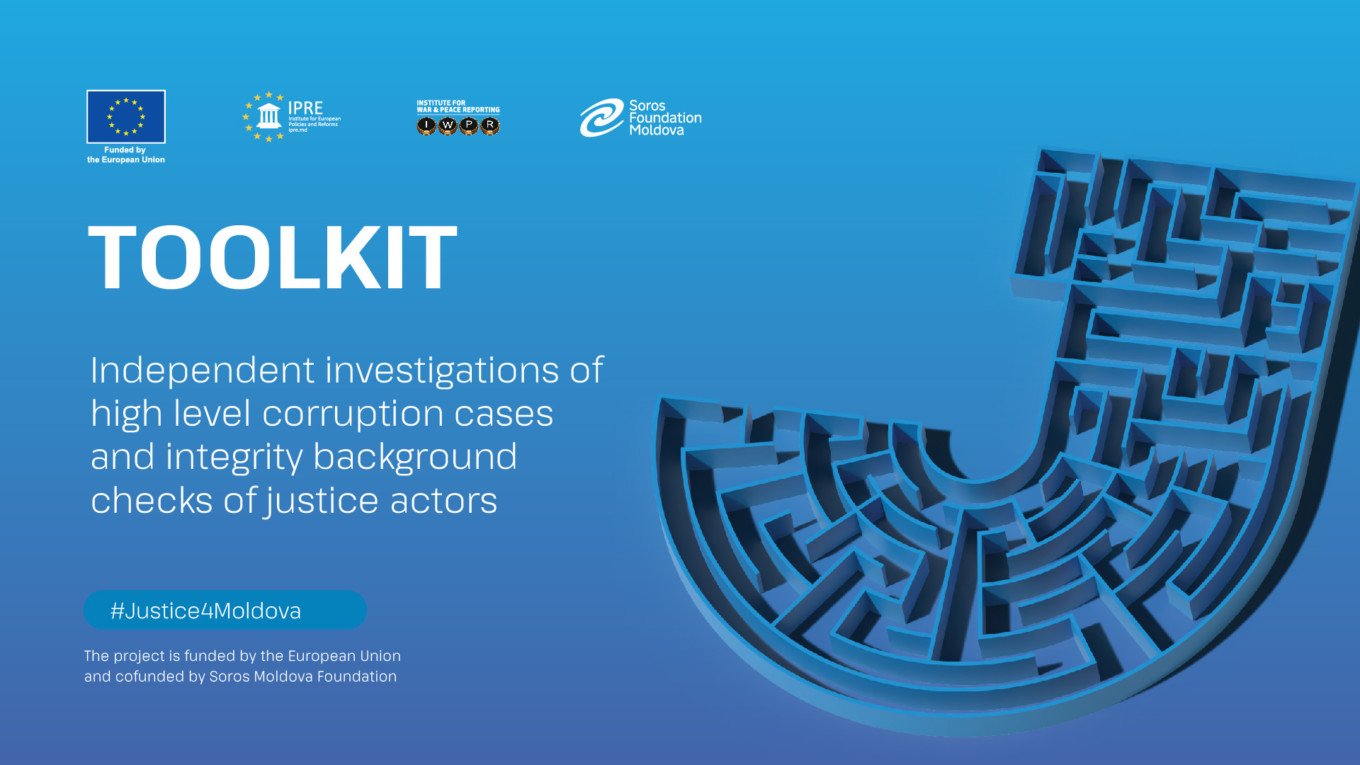IPRE has developed a toolkit aimed at strengthening the capacities of investigative journalists and vetting analysts in the field of justice

The Institute for European Policies and Reforms (IPRE), in partnership with the Institute for War and Peace Reporting (IWPR), within the #Justice4Moldova project, funded by the European Union and co-financed by Soros Foundation Moldova, has developed a toolkit for investigative journalists and vetting analysts on independent investigations of high level corruption cases and integrity background checks of justice actors.
The toolkit combines both theoretical knowledge and practical recommendations on collecting and analysing publicly available information, as well collecting data through freedom of information tools.
The first section is a step-by-step guide on conducting integrity background checks of justice actors and investigating high-level corruption. It also provides background information about the vetting process in Moldova. The toolkit includes instructions on searching and analysing general information about the individuals, their professional background, financial flows, and different schemes. It answers three basic questions – what, where and how to look for.
The toolkit also collects links to different sources of information and searching tips. Importantly, the toolkit provides instruction on conducting financial flow analyses, the instrument the Independent Evaluation Commission uses for assessing the integrity of the candidates applying to the self-governing bodies of judges and prosecutors (Pre-vetting Commission), the Independent Evaluation Commission on the External Evaluation of Judges and Candidates for the position of Judge of The Supreme Court of Justice (Vetting Commission) and the Commission for the Evaluation of Prosecutors (Prosecutor Vetting Commission).
The second part provides the legal framework for collecting information and it explains how to use the instrument of access to public information. In particular, it details the general provisions of the Moldovan legislation, what kind of information could be asked for, how to request and receive information, and what to do in case the request is refused or rejected.
The third section addresses the issues of processing information and managing legal risks, which is particularly relevant when investigating high-profile corruption cases. The invasion of privacy could be an effective measure to prevent journalists and analysts from continuing their investigations, therefore it is crucial to take into consideration the requirements and limitations established by the law when conducting background checks and inquiries.
For more details please consult the training toolkit available in English language here.
This toolkit was developed with the financial support of the European Union and Soros Foundation Moldova. Its content is the sole responsibility of the project “Ensuring the integrity, efficiency and independence of the justice system in Moldova – #Justice4Moldova, funded by the European Union and co-financed by Soros Foundation Moldova. The content of the toolkit belongs to the authors and does not necessarily reflect the point of view of the European Union and Soros Foundation Moldova.

